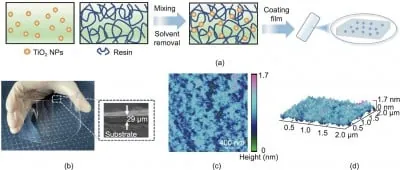
Is Your First Period a Warning Sign? Shocking Links to Long-Term Health Risks Revealed!
2025-07-14
Author: Daniel
A groundbreaking new study has uncovered alarming connections between the age at which a woman gets her first period and her risk for serious health issues later in life. Presented at ENDO 2025, the Endocrine Society’s annual meeting in San Francisco, this research suggests that both early and late menarche can significantly impact a woman’s long-term health.
Early and Late Menarche: What You Need to Know!
Women who start their menstrual cycle before the age of 10 may face heightened risks for obesity, diabetes, hypertension, and heart conditions, including reproductive complications such as preeclampsia. Conversely, while those experiencing menarche after age 15 might escape obesity, they are prone to menstrual irregularities and some cardiovascular issues.
Understanding the Risks: A Call to Awareness!
Dr. Flávia Rezende Tinano, the study's lead author from the University of São Paulo, emphasizes the importance of recognizing these health implications. "Most women can remember their first period, but they might not realize the health risks it signifies for their future," she warns. This pivotal research is the largest of its kind conducted in a developing country, providing fresh insights that challenge previous findings mostly centered in developed nations.
Unveiling the Study: How Was It Conducted?
The study analyzed data from 7,623 women aged 35 to 74, gathered through comprehensive physical assessments, lab tests, and interviews as part of the Brazilian Longitudinal Study of Adult Health. Researchers categorized menarche into three groups: early (under 10 years), typical (10-15 years), and late (over 15 years), then assessed various health markers.
Startling Findings: Age at Menarche as a Health Predictor!
The results indicated that early menarche significantly raises the odds for several health issues with alarming odds ratios (ORs): 2.18 for obesity, 1.85 for type 2 diabetes, and 2.50 for heart failure. These women also reported higher instances of preeclampsia and angina.
On the flip side, while late starters did face some risks, such as oligomenorrhea and increased need for heart revascularization, several other conditions like type 2 diabetes showed notable risks only in initial analyses.
Towards Tailored Health Solutions: A Path Forward!
This compelling research points to the potential of age at menarche as a critical marker for cardiometabolic and reproductive health. As Dr. Tinano suggests, "This knowledge could pave the way for personalized screening and prevention strategies, particularly in underrepresented populations. It stresses the urgent need for health education among young girls, especially in developing countries.
Understanding these connections can empower women and health professionals alike, leading to proactive measures against chronic diseases. Is your first period more than just a milestone? It might just hold the key to your lifelong health!



 Brasil (PT)
Brasil (PT)
 Canada (EN)
Canada (EN)
 Chile (ES)
Chile (ES)
 Česko (CS)
Česko (CS)
 대한민국 (KO)
대한민국 (KO)
 España (ES)
España (ES)
 France (FR)
France (FR)
 Hong Kong (EN)
Hong Kong (EN)
 Italia (IT)
Italia (IT)
 日本 (JA)
日本 (JA)
 Magyarország (HU)
Magyarország (HU)
 Norge (NO)
Norge (NO)
 Polska (PL)
Polska (PL)
 Schweiz (DE)
Schweiz (DE)
 Singapore (EN)
Singapore (EN)
 Sverige (SV)
Sverige (SV)
 Suomi (FI)
Suomi (FI)
 Türkiye (TR)
Türkiye (TR)
 الإمارات العربية المتحدة (AR)
الإمارات العربية المتحدة (AR)